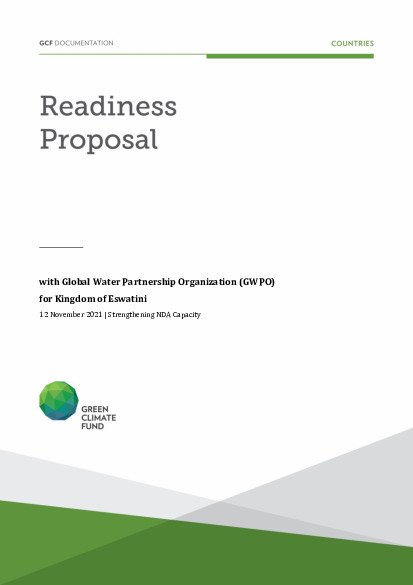Strengthening the NDA’s institutional and technical capacity to mobilize gender-responsive climate finance for Eswatini

Strengthening the NDA’s institutional and technical capacity to mobilize gender-responsive climate finance for Eswatini
Eswatini has been experiencing climate change impacts. Increasing recurrence and magnitude of droughts, increases in flash flooding resulting in landslides and accelerated erosion, and changes in rainfall patterns are some of the impacts. These impacts are affecting the people of Eswatini through increasing food insecurity and poverty levels, and affecting supply of water and energy. The frequency and intensity of extreme climate events is expected to rise, posing significant risks to Eswatini’s economy, its people’s livelihoods, and the sustainability of its natural resources base.
Eswatini has been taking a number of policy measures to respond to climate change and its impacts as part of the country’s long-term strategy of building a climate resilient and green economy. The National Climate Change Policy (NCCP) that was adopted in 2016 provides a framework for addressing national climate change challenges, importantly, through an integrated and participatory approach. However, there is a gap in the implementation of the policy, especially in preparing programs and projects that can contribute to building the climate resilience of the people and ecological systems of the country.
This Readiness request is aimed at overcoming the following challenges/barriers that are associated with the implementation of the climate policy in Eswatini, with particular focus on water-related areas:
- Inadequate capacity of the Climate Change Focal Point/NDA to guide and coordinate the development of projects to access climate finance. The NDA currently has limited capacity to engage with the private sector and does not have a gender action framework to advance prioritized project ideas into the country’s GCF project pipeline in a way that addresses gender-related concerns.
- Absence of a clear strategic framework to guide the planning, design, financing and implementation of priority water-related climate technologies in Eswatini investment planning that can access climate finance.
- Limited climate finance project pipelines (project ideas, concept notes) specifically in the water sector to facilitate climate investment.
- Inadequate mechanisms for facilitating knowledge sharing and learning in preparing and implementing readiness and other climate finance projects to expand climate actions.